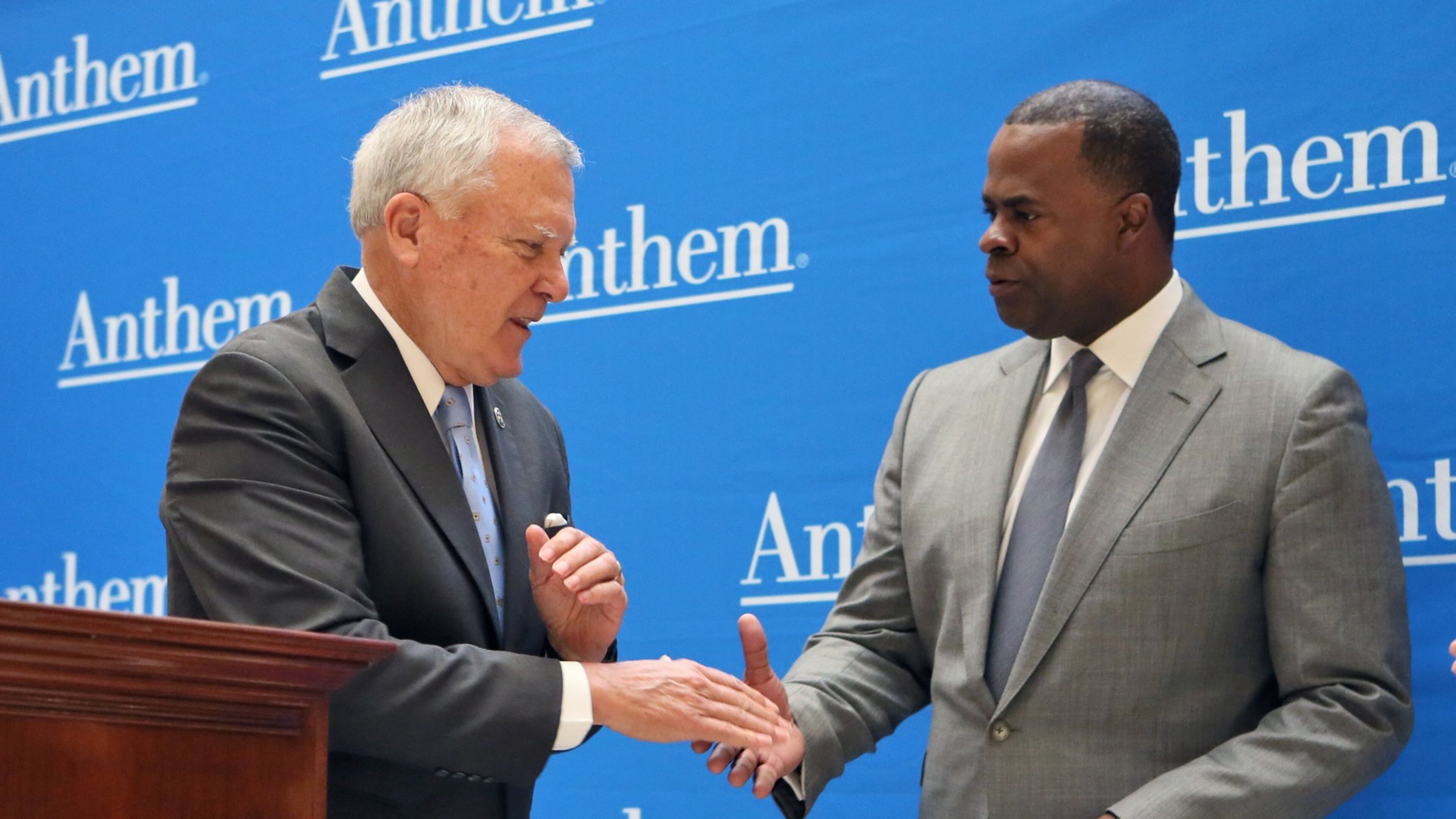Talks resume in Blue Cross-Piedmont Healthcare contract break

It's now been 10 days that patients of Piedmont Healthcare with Blue Cross insurance have been out of network. The two companies still have no deal to renew their contract, which expired Easter Sunday. And they're still talking tough.
But at least they’re talking.
On Monday they had their first meeting since talks collapsed at the contract deadline.
Blue Cross Blue Shield of Georgia President Jeff Fusile spoke to The Atlanta Journal-Constitution on Tuesday, making his first public comments on the contract break.
“I think the governor coming in shows the importance of the matter,” Fusile said, referring to Gov. Nathan Deal’s letter directing Blue Cross and Piedmont to get back to the table and strike a deal. “I appreciated his note and his reinforcement. But we’ve always been fully engaged and at the table. I have personally been involved in these negotiations since August of 2017. And deeply involved, daily, face-to-face, in very lengthy meetings with folks on the Piedmont team.”
A spokesman for Piedmont Healthcare, Matt Gove, echoed the thought, for his side.
"We met with them yesterday. We're meeting with them today," Gove said. "We're not going to stop negotiating because that's what our patients deserve. … It is what our face-to-face meeting yesterday proved is that when we can actually sit down and talk we can make some progress."
Although Piedmont has sued Blue Cross over two new company policies restricting payment for in-hospital imaging and for some emergency visits, neither Fusile nor Gove said that was the sticking point. Instead, they said, it's old-fashioned prices.
“We’ve offered a fair rate,” Fusile said. “Piedmont’s determined that they don’t believe that it’s a fair rate. And we keep going back and forth to find the balance between them providing good quality care and helping our members continue to afford it.”
Fusile says Blue Cross has offered Piedmont — a large collection of hospitals and doctors dotted across much of the northern part of the state — an increase in prices that averages three times the rate of what the average Georgia person receives as an annual salary increase.
The complication is that some parts of Piedmont have historically been underpaid and need to be brought up to speed, whereas Blue Cross believes some are paid over market rate. (Which, by the way, Gove denies.)
“I could tell you — if I were being the same way — that there are certain organizations (within the Piedmont umbrella) that are going to get nearly a 100 percent increase,” Fusile said. “But on average, to be fair to everybody, on average it’s about three times the rate of inflation.”
Fusile wants people to know that 90 percent of his customers pay their own medical costs, with Blue Cross just managing the system for them. In those cases he’s not negotiating for Blue Cross’ profit, but for their savings.
Piedmont’s Gove scoffs at the positioning. “It is interesting to see a $90 billion for-profit entity position itself as a controller of health care costs while a local nonprofit health system — that reinvests every bit of earnings into its communities — continues to work every day on managing costs while delivering the care our communities deserve,” Gove said.
Neither said they could tell whether a deal is in sight. But both said they care.
“First of all, we share the disappointment that our consumers feel,” Fusile said. “My four children were born at Piedmont. My physicians are at Piedmont. Many of our employees receive their care through Piedmont. We have nothing against Piedmont. We simply want to be able to pay them a fair rate and get them back in network.”
Fusile said that a modest difference in the increase of health care prices may not seem like a critical matter, but it is, to every Georgian.
“The average cost of health care all in for a family of four is $28,000 a year,” he said. “The average family of four in Georgia makes less than $56,000 a year. We’re at a point where what that says is the cost of health care is more than half of the average family of four’s gross income. It can’t keep rising at unfair rates.”
For Piedmont, Gove said, it’s about patient care.
“Paying hospitals fair rates is critically important in a state where rural hospitals are closing,” he said. “The ability of our physicians to deliver the care they believe is appropriate to their patients is of critical importance to Piedmont.”
MORE DETAILS
What happened: Blue Cross Blue Shield of Georgia and Piedmont Healthcare failed to reach an agreement before their contract ended at the end of March. The dispute is over what services are covered and how much Piedmont doctors and facilities are reimbursed.
Who is affected: About a half-million Blue Cross Blue Shield of Georgia patients have seen a Piedmont provider within the past 18 months. They will be paying out-of-network costs if they stay with their current doctor.
Rolling the dice: Piedmont says it is treating billing as if the contract will be resolved and the patients made whole, as has happened in the past. It is unclear what will happen with those bills sent to Blue Cross if there's no resolution.
What's next: Both sides are taking tough positions as the dispute continues. But they're talking. On Monday, they had their first meeting since negotiations collapsed at the deadline.
Stay on top of what’s happening in Georgia government and politics at PoliticallyGeorgia.com.



